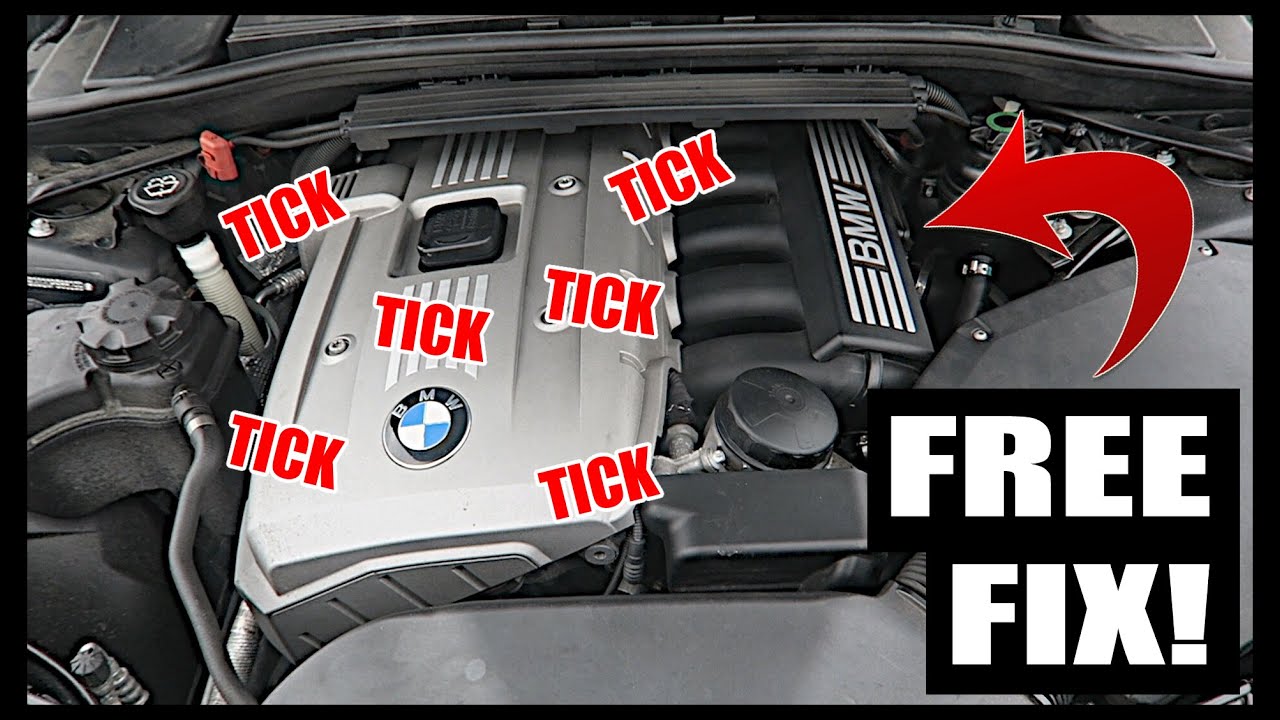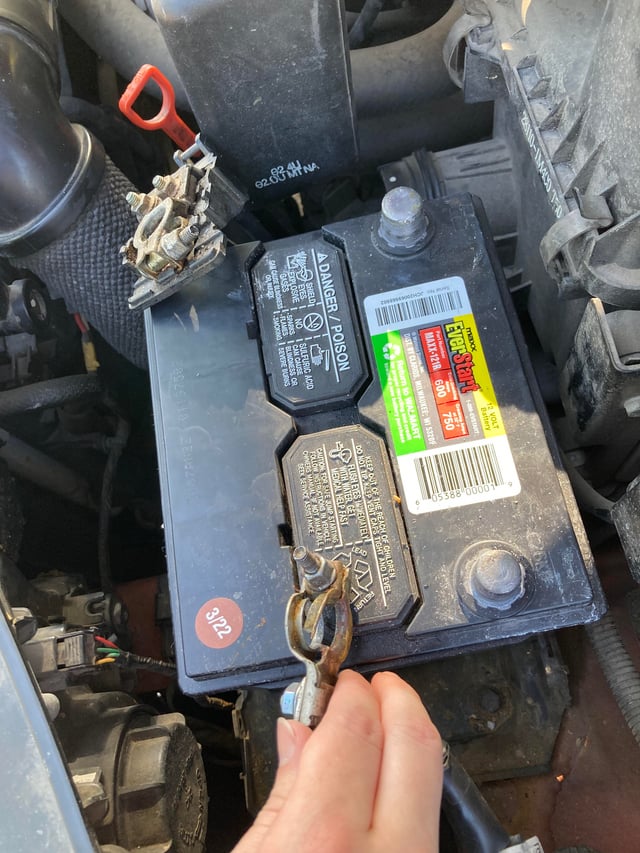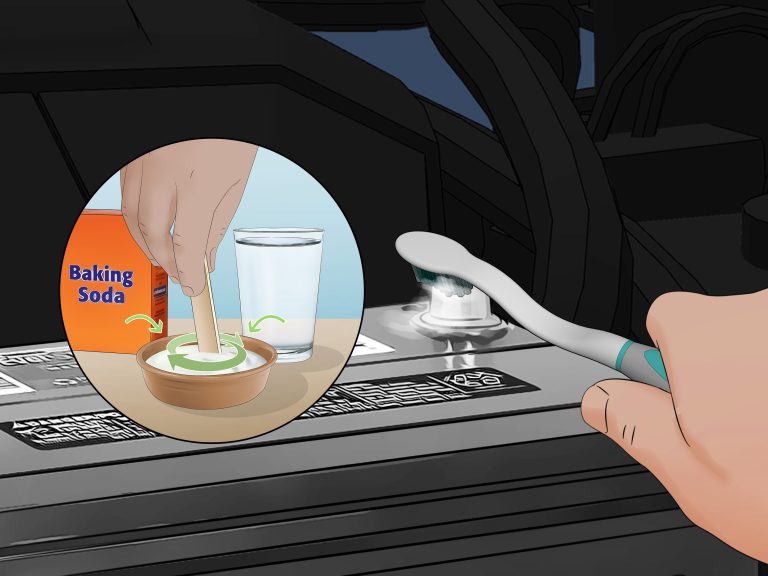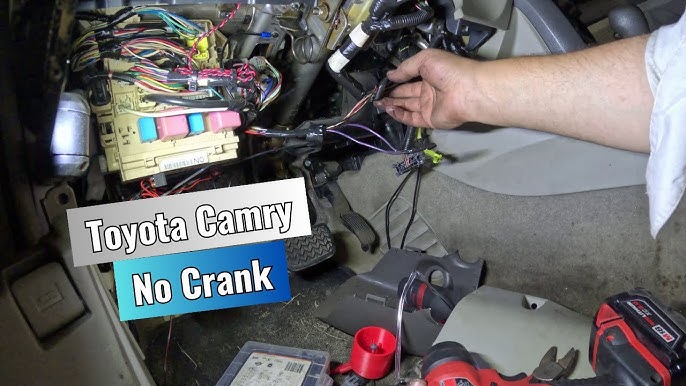Ticking Noise in Engine: Uncover Hidden Causes Today
A ticking noise in the engine often indicates low oil levels, worn valve lifters, or issues with the timing chain. It may also result from using the wrong oil type. Prompt inspection is essential to prevent further engine damage or costly repairs.
But what exactly is it saying? Is it a small issue that can be ignored, or is it a warning sign of something more serious under the hood? You might feel a pang of concern, wondering about the potential costs and time involved in fixing this mysterious noise.
Before you allow worry to take over, take a moment to arm yourself with knowledge. Understanding the possible causes and solutions can not only save you time and money but also give you peace of mind. This article will walk you through the common reasons for a ticking noise in your engine and offer practical steps you can take to address it. Keep reading to ensure your vehicle remains a trusted companion on all your journeys.

Credit: pedalcommander.com
Ticking Noise in Engine
Common Sources Of Engine Ticking
Ticking noises in engines often come from worn lifters, low oil levels, or faulty spark plugs. Valve train issues can also cause ticking sounds, affecting engine performance. Regular maintenance helps identify and fix these common sources, ensuring a smooth-running engine.
Have you ever heard a mysterious ticking noise coming from your car’s engine? It’s like a nagging whisper that something might be wrong. This sound can be unsettling, especially if you’re not sure where it’s coming from. Understanding the common sources of engine ticking can help you diagnose the problem and potentially save you from costly repairs. Whether you’re a seasoned car enthusiast or a beginner, knowing these sources can empower you to take action.
Read more: Clicking Sound When Starting Car Cold: Causes & Fixes
1. Low Oil Levels
One common source of engine ticking is low oil levels. When oil is low, parts of the engine may not get the lubrication they need. This can cause metal components to rub against each other, leading to that ticking noise. Regularly checking your oil level and topping it off can prevent this issue. Have you checked your oil level recently?
2. Worn Out Lifters
Worn out lifters are another culprit. Lifters are responsible for opening and closing the engine’s valves. If they become worn, they can make a ticking sound. Replacing worn lifters can be a bit technical, but it’s often necessary to maintain engine performance. Have you ever had to replace lifters in your car?
3. Misaligned Valves
Misaligned valves can also lead to ticking sounds. Valves control the flow of air and fuel into the engine and the exit of exhaust gases. If they aren’t aligned properly, they can make a ticking noise. A simple valve adjustment can often resolve this issue. How confident are you in adjusting your car’s valves?
4. Timing Chain Issues
Your car’s timing chain keeps the engine’s pistons and valves working in sync. If the timing chain is loose or worn, it may produce a ticking noise. Regular maintenance can help keep the timing chain in good shape. When was the last time you checked your timing chain?
5. Exhaust Leaks
Believe it or not, exhaust leaks can also cause ticking noises. When there’s a leak, exhaust gases can escape, leading to unusual sounds. Fixing exhaust leaks often involves inspecting and repairing the exhaust system. Have you ever heard a ticking noise that turned out to be an exhaust leak? Understanding these common sources can make a world of difference. It can help you feel more in control and less anxious about potential car troubles. Next time you hear that ticking noise, remember these points and see if one of them might be the cause. Don’t let the mystery of engine ticking keep you from enjoying your drive.
Credit: www.highlinewarren.com
Read more: Car Shuts off When Stopped Or Slowing Down: Causes & Fixes
Impact Of Oil Pressure
Ticking noises in an engine often signal underlying problems. A common culprit is oil pressure. Low oil pressure can disrupt engine function, causing ticking sounds. Let’s explore how oil pressure impacts these noises.
Impact Of Oil Pressure On Engine Performance
Oil pressure keeps engine parts lubricated. Without proper pressure, parts grind together. This friction leads to ticking noises. Poor lubrication increases wear, affecting engine longevity.
Role Of Oil Viscosity
Oil viscosity influences pressure levels. Thick oil maintains pressure better, reducing ticks. Thin oil fails to lubricate, increasing noise risk. Selecting the right viscosity is crucial for engine health.
Importance Of Regular Oil Changes
Old oil loses effectiveness. Regular changes ensure optimal pressure. Fresh oil keeps engines quiet, preventing ticking. Routine maintenance helps preserve engine performance.
Effects Of Oil Pressure Sensor Malfunction
Faulty sensors give inaccurate readings. Misleading data affects pressure regulation. Unchecked sensor issues lead to ticking sounds. Timely sensor checks are essential for engine health.
Consequences Of Ignoring Oil Pressure Issues
Neglecting oil pressure problems damages engines. Ticking noises worsen over time. Addressing issues early prevents costly repairs. Maintaining pressure safeguards engine efficiency.
Valve Train Issues
A ticking noise in an engine often signals valve train issues. This sound can indicate problems with lifters or worn-out components. Regular maintenance can help identify and fix these issues before they cause further damage.
Valve train issues can be a common source of that annoying ticking noise you hear coming from your engine. These components are crucial as they control the opening and closing of the engine’s valves. A disturbance here can lead to significant performance issues if not addressed promptly. Let’s delve into the details of valve train issues and how they might be causing that ticking noise.
What Is The Valve Train?
The valve train is essentially the heart of your engine’s breathing system. It comprises several parts including the camshaft, pushrods, rocker arms, and valves. These components work together to ensure that your engine breathes properly. If one of these parts malfunctions, you might hear a ticking sound.
Common Valve Train Problems
Valve train problems often arise from wear and tear over time. Regular maintenance can help prevent these issues. If you notice a ticking noise, it could be due to a loose or worn component in the valve train. Identifying and fixing these issues early can prevent costly repairs down the road.
Loose Valve Adjustments
One of the most common issues is loose valve adjustments. If the clearance between the valve and its components isn’t right, it can create a ticking noise. Checking and adjusting the valve clearance can often resolve the issue. This is an easy fix that you can often do yourself with the right tools and instructions.
Worn Camshaft Lobes
Worn camshaft lobes can also contribute to ticking noises. The camshaft is responsible for opening and closing the valves. Over time, the lobes can wear down, causing a ticking sound as they fail to engage properly. Replacing worn camshaft lobes might be necessary if the noise persists.
Damaged Pushrods
Pushrods transfer motion from the camshaft to the valves. If they become bent or damaged, they can cause a ticking noise. Inspecting the pushrods for damage and replacing them if needed can prevent further issues. This is another reason why routine checks are so important.
Hydraulic Lifter Failures
Hydraulic lifters can fail, leading to ticking noises. They are designed to maintain zero clearance in the valve train. If a lifter becomes stuck or fails, it can create a gap, causing that ticking sound. Replacing the faulty lifter can eliminate the noise and restore your engine’s smooth operation.
Regular Maintenance Checks
Regular maintenance checks can save you from bigger headaches. By keeping your valve train components in good shape, you can prevent ticking noises and other issues. Have you checked your engine’s valve train lately? If not, it might be time for a visit to your trusted mechanic.
Diy Or Professional Help?
Deciding whether to fix valve train issues yourself or seek professional help can be a tough choice. Some tasks like adjusting valve clearance can be done at home. However, more complex issues like replacing camshaft lobes might require professional expertise. What’s your comfort level with car repairs? Sometimes, leaving it to the pros is the best choice for peace of mind.
Exhaust System Concerns
A ticking noise in the engine often signals exhaust system concerns. This sound might suggest a leak in the exhaust manifold or a failing gasket. Quick attention can prevent further damage and costly repairs.
The exhaust system is a crucial part of your vehicle’s engine. It’s responsible for directing harmful gases away from the engine and ensuring that your car runs smoothly. However, when you hear a ticking noise emanating from the engine, it could signal a problem with the exhaust system. This issue not only affects your driving experience but could potentially harm your vehicle’s performance and longevity. Understanding the exhaust system concerns can help you address these ticking noises effectively.
Exhaust Leaks And Their Impact
Exhaust leaks are common culprits behind ticking noises in engines. These leaks can occur when there are gaps or holes in the exhaust system. As exhaust gases escape, they create a ticking sound that can become more pronounced when accelerating. If you suspect an exhaust leak, check for visible damage or rust in the exhaust pipes. You might notice reduced fuel efficiency or a drop in engine performance. An exhaust leak isn’t just noisy; it can affect your car’s overall health.
Faulty Exhaust Manifold
The exhaust manifold collects exhaust gases from the engine cylinders. When it becomes damaged or develops cracks, it can produce ticking noises. This is because the gases escape through the cracks, disrupting the usual flow. A faulty exhaust manifold can also lead to higher engine temperatures. This overheating can cause further damage if not addressed. Regular inspections can prevent such issues from escalating.
Loose Exhaust Components
Loose components in the exhaust system can rattle and produce ticking sounds. These components include bolts, brackets, and hangers that keep the exhaust system secured. Over time, vibrations and wear can loosen these parts. To fix this issue, ensure all components are tightly secured. Regular maintenance checks can catch these problems early, saving you from costly repairs later.
Personal Experience And Lessons Learned
I remember the first time I heard a ticking noise in my engine. It was unnerving, and I had no clue what was causing it. After a visit to my mechanic, I learned it was due to an exhaust leak. This experience taught me the importance of paying attention to unusual sounds. Ignoring them can lead to bigger problems down the road. Have you ever ignored a strange noise and regretted it later?
Practical Tips For Identifying Exhaust Issues
– Listen Carefully: Pay attention to when the noise occurs. Is it during acceleration or at idle? This can provide clues about the source. – Visual Inspection: Regularly check the exhaust system for visible damage. Look for rust, cracks, or loose parts. – Professional Help: If you’re unsure, consult a mechanic. They can diagnose the problem accurately and suggest the best solution. How vigilant are you about maintaining your exhaust system? Taking proactive steps can save you time and money in the long run. Addressing ticking noises promptly ensures your vehicle remains in top condition.
Diagnosis And Solutions
Ticking noises in an engine can cause concern for many car owners. Identifying the source helps prevent bigger issues. This section explores common causes and solutions.
Common Causes Of Ticking Noises
Ticking noises often result from low oil levels. Engines need enough oil for lubrication. Without it, parts rub together, creating noise. Check your oil level first.
Inspecting The Oil Level
Park your car on a flat surface. Turn off the engine and let it cool. Pull out the dipstick. Wipe it clean, then insert it back. Pull it out again to check the level. Add oil if needed.
Checking The Oil Viscosity
Oil viscosity affects engine performance. Thick oil can cause ticking sounds. Use the oil recommended in your manual. Ensure it’s suitable for the current season.
Examining The Lifters
Lifters might cause ticking if they wear out. Listen carefully to the noise source. Lifters usually tick when the engine starts. If so, consult a mechanic for further inspection.
Assessing The Fuel Injectors
Fuel injectors can produce ticking noises. They click when opening and closing. This is normal but should be consistent. Any irregular pattern may indicate issues.
Solving Exhaust Leaks
Exhaust leaks create ticking sounds. Inspect the exhaust manifold for cracks. Listen near the manifold for abnormal sounds. Repair leaks promptly to avoid engine damage.
Replacing Worn-out Components
Worn-out parts like spark plugs cause ticking. Inspect these components for wear. Replace them if necessary. Regular maintenance prevents these issues.
Consulting A Professional Mechanic
Sometimes, ticking noises need expert attention. Mechanics have tools for thorough diagnostics. They can identify and fix complex issues. Always choose a trusted professional.

Credit: www.youtube.com
Frequently Asked Questions
What Causes A Ticking Noise In An Engine?
A ticking noise often results from low oil levels, lifter issues, or exhaust leaks.
Is Ticking Noise In Engine Dangerous?
It can be. Some ticking noises indicate serious problems that need immediate attention.
How Can I Fix A Ticking Engine Noise?
Check your oil level first. If it’s fine, consult a mechanic for further diagnosis.
Can A Ticking Noise Affect Engine Performance?
Yes, it can. If left unchecked, it may lead to engine damage.
Should I Drive With A Ticking Engine Noise?
It’s risky. Driving might worsen the problem. It’s best to have it checked soon.
Conclusion
Ticking noises in engines cause worry for many drivers. Understanding the reasons helps in addressing the issue early. Regular maintenance prevents serious problems. Checking oil levels often helps. Use quality oil for smoother running. Listen to your engine closely. Catching odd sounds saves time and money.
A mechanic can offer expert advice. Don’t ignore strange noises. Your engine’s health depends on attention. Keep your car running smoothly. Peace of mind comes from knowing your engine is in good shape. Remember, a well-maintained engine lasts longer. Stay alert, and enjoy your drives without worry.







